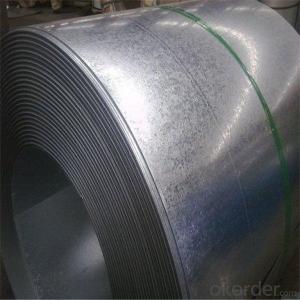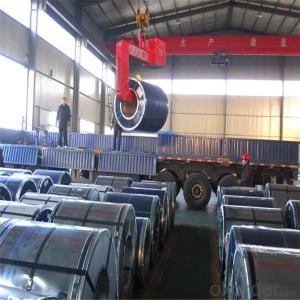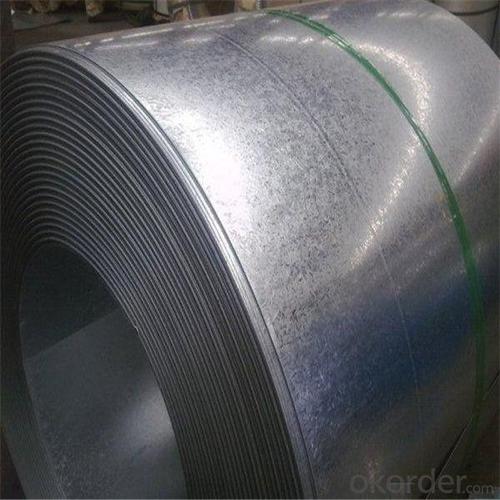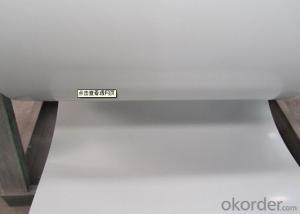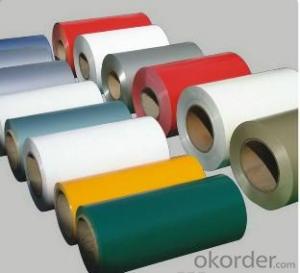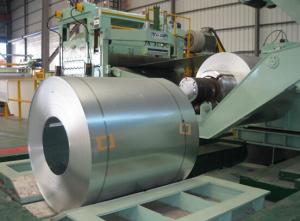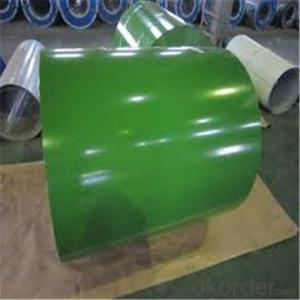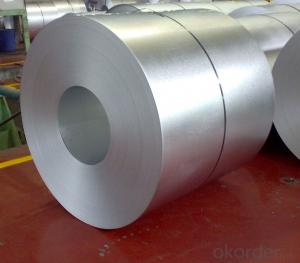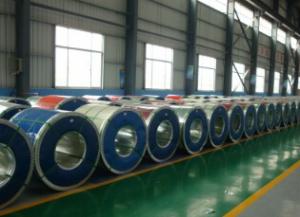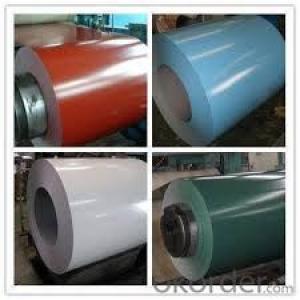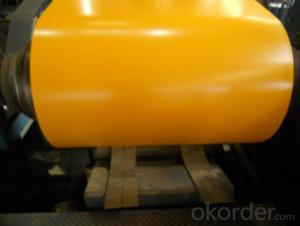Aluzinc and Galvanized steel sheet in coils
- Loading Port:
- China main port
- Payment Terms:
- TT OR LC
- Min Order Qty:
- 25 m.t.
- Supply Capability:
- 17654 m.t./month
OKorder Service Pledge
OKorder Financial Service
You Might Also Like
Specification
Galvalume should not be used on, in, or around concrete or mortar. Concrete and mortar are highly alkaline environments. Bare Galvalume and painted Galvalume sheets suffer rapid corrosion when in contact with mortar and concrete. Bare Galvanized and painted Galvanized perform better in this type of environment.
While Galvalume has excellent durability in many settings, it should not be used adjacent to concrete or mortar.
Due to the high alkaline content in these environments, bare and painted Galvalume rapidly corrode.
Standard and Grade :
Hot-dip Aluzinc steel coils | ||||
ASTM A792M-06a | EN10327-2004 | JIS G 3321:2010 | AS- 1397-2001 | |
Commercial quality | CS | DX51D+AZ | SGLCC | G1+AZ |
Structure steel | SS GRADE 230 | S220GD+AZ | SGLC400 | G250+AZ |
SS GRADE 255 | S250GD+AZ | SGLC440 | G300+AZ | |
SS GRADE 275 | S280GD+AZ | SGLC490 | G450+AZ | |
SS GRADE 340 | S320GD+AZ | SGLC570 | G450+AZ | |
SS GRADE 550 | S350GD+AZ | G500+AZ | ||
S550GD+AZ | G550+AZ | |||
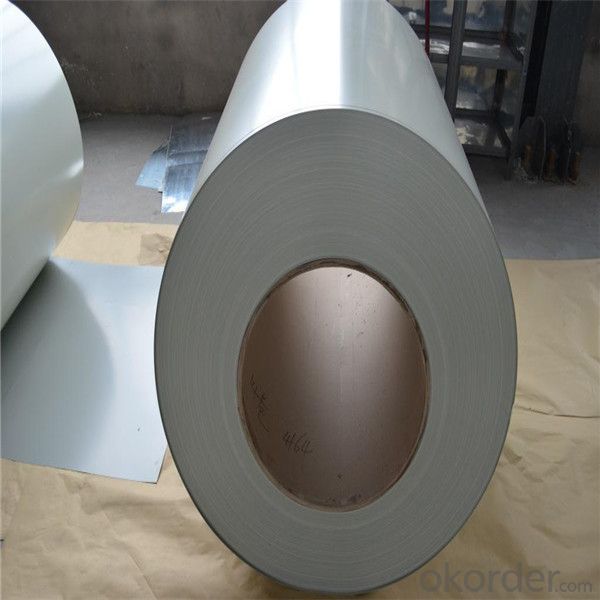
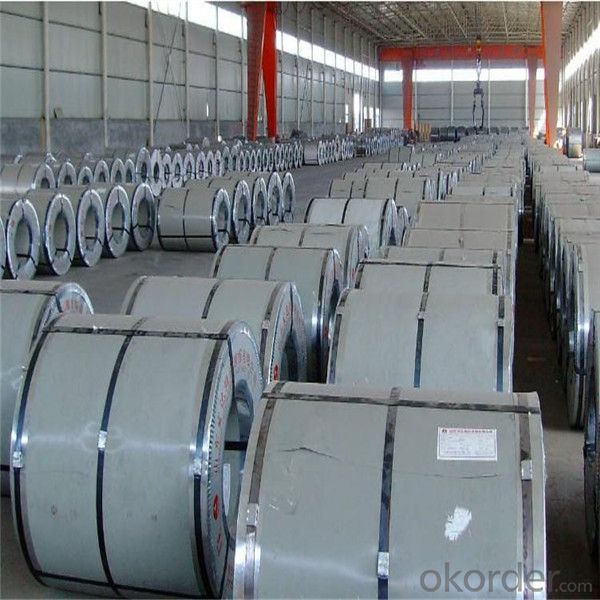
Application :
Production of cold formed corrugated sheet and profiles for roofing, cladding, decking, tiles, sandwich
walls, rainwater protective systems, air conditioning duct as well as electrical appliances and engineering.
Packaging & Shipping
Packaging Detail | The packing of coil consists of anti-damp paper ,PVC film ,hardboard paper , steel box , strapped with steel strips, fitted with locks and edge protectors and guarantees the optimal condition of the delivered goods. Each coil can be additionally fitted with wooden/steel skids(eye of the side) or wooden pallets(eye of the sky) |
Delivery Time | within 30 days of receipt of LC original or prepayment |
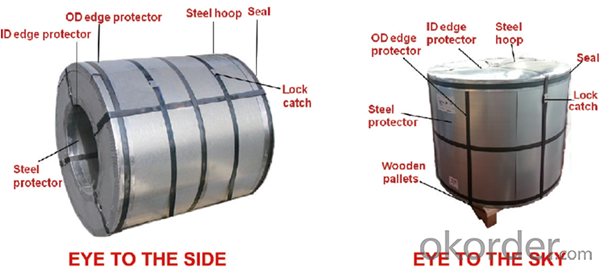
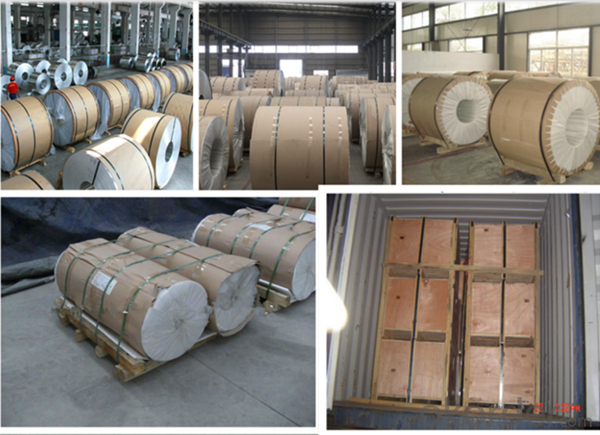
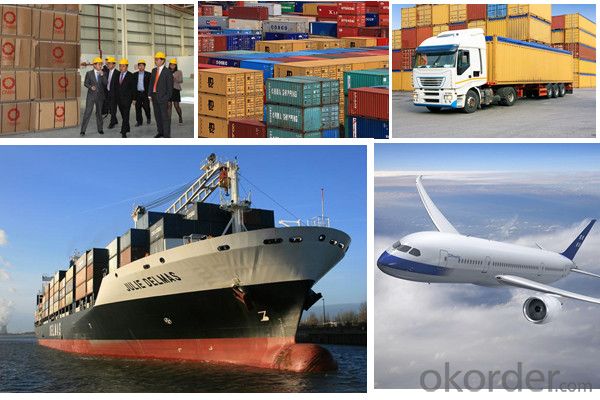
Our Services
MOQ | FCL, 25 metric tons per 20GP, can be assorted with different sizes. |
LCL for trial order is acceptable. | |
Price Term | EX-WORK, FOB China Port, CNF, CIF |
Payment | T/T, 30% advanced payment before production and balance before shipment; OR Irrevocable L/C at sight. |
Delivery Time | within 30 days of receipt of LC original or prepayment |
Our Advantage
* Professional Personnel of Steel Trading
* Strong Steel Industry Background
* Conveniently Geographic Location
FAQ
Q: How do you guarantee the quality of your product?
A: Every process will be checked by responsible QC which insures every product's quality.
Q: How much is your delivery time?
A: Normally within 30 days of receipt of LC original or prepayment, but mostly according to the
specific requirements or the quantity
Q: I need sample, could you support?
A: We can supply you with the sample for free, but the delivery charges will be covered by our customers.
For avoiding the misunderstanding, it is appreciated if you can provide the International Express Account for
Freight Collect. Also you can have a visit to us, welcome to CNBM!
- Q: What is the size range of steel coils?
- The size range of steel coils can vary depending on the specific requirements and applications, but generally, they can range from a few inches to several feet in width and from a few thousand pounds to several tons in weight.
- Q: Maybe it is obvious. But i have thought alot about it.I thought steel at a cool temperature was unbreakable. I am not one for science or physics or engineering (i am a political science major). But i don't understand why the planes that struck the world trade center on 9-11 didn't just dent the side and fall,How did the place break the steel? Was it the velocity? Is steel easily broken?I realized that i wasn't taught how the planes broke the steel, and that no one ever asked. I searched the web and i couldn't find the answer or even anyone who had asked the question before.(i don't care about conspiracy theories, i just want scientific facts)
- I saw a one-hour program about this on PBS a couple of years ago. The buildings were constructed with the concrete-clad steel supporting columns at the center of the buildings, with a relatively thin lattice of steel struts along the outer wall. When the planes hit, they sheered through the thin steel struts easily by sheer momentum, while, at the same time, the thin steel stripped off the wings. The bodies of the planes got as far as the supporting columns in the center of the buildings, but were stopped there. The heaviest, densest pieces, the engines, went completely through the buildings and popped out the other side. It's important to understand that even light materials can cut through metal, if the light material is going fast enough. I saw this first hand, when I was in the Navy and stationed on board ship. We had a helicopter crash on our flight deck during heavy weather. The blades were made of light, carbon-composite material, but they were going so fast that they cut through the aluminum deck. I still have photos of that damage.
- Q: I have a set of Ben Hogan Apex Plus Forged Irons, how can i figure out if the shafts are steel or graphite?
- Hold one club in each hand and hit them together like swords fighting, putting the impact point about midway down each shaft, and listen to the sound. If it's more of a clank sound, it's steel, and more of a click sound, it's graphite.
- Q: What is stainless steel 316, and what are its properties and uses?
- For machined aspects 416 cautioned. For welded aspects 316 is cautioned. besides the shown fact that 316 supplies a greater advantageous corrosion resistance. oftentimes the only benefit for 416 is machinability others than that 316 is greater advantageous
- Q: How are steel coils inspected for thickness using ultrasonic testing?
- Ultrasonic testing is employed to inspect the thickness of steel coils, utilizing a non-destructive method. When conducting this process, a handheld ultrasonic thickness gauge is utilized to determine the thickness of the coil. The ultrasonic thickness gauge emits high-frequency sound waves that travel through the steel coil. These sound waves rebound from the opposite side of the coil, generating an echo. The time it takes for the echo to return to the gauge is measured and utilized to compute the coil's thickness. The gauge comprises a transducer responsible for emitting the sound waves and a receiver that detects the echoes. To ensure optimal acoustic contact between the transducer and the steel surface, the transducer is placed on the coil's surface, utilizing a coupling gel or oil. The transducer releases a brief burst of sound waves, which penetrate through the steel coil and reach the opposite side. If the sound waves encounter any variations or defects in the coil's thickness, they reflect back to the transducer. These echoes are detected by the receiver, and the time between the emission and reception of the sound waves is measured. By utilizing the known speed of sound in steel, the time taken for the sound waves to traverse the coil and return can be converted into a thickness measurement. This enables an accurate evaluation of the steel coil's thickness at different points. Ultrasonic testing is a dependable and efficient method for inspecting the thickness of steel coils. It permits swift measurements without causing any harm to the material, thereby making it ideal for quality control purposes and ensuring compliance with manufacturing specifications.
- Q: How are steel coils used in the production of metal signs?
- Steel coils are used in the production of metal signs by being processed through a series of steps such as cutting, shaping, and welding. The coils are uncoiled and cut into the desired size and shape for the sign. Then, they are shaped using various methods like bending or rolling to achieve the desired design. The coils may also undergo welding to join different sections or add additional components to the sign. Overall, steel coils provide the raw material necessary for creating durable and sturdy metal signs.
- Q: Can steel coils be stamped?
- Yes, steel coils can be stamped. Stamping is a common process used to shape and form steel coils into various shapes and sizes for different industrial applications.
- Q: the difference between the original steel and mild steel from percentage of carbon
- As the first answers suggest, the prolbem is that these terms are not specific, they are not scientifically or technically defined. This is like asking: what is the difference between a four door car and a sedan? There are hundreds of steel alloys ranging from Fe + a little C + very little else to alloy and tool steels with significant amounts of Cr, Ni, Si, and a number of other elements + C. And... for any given steel alloy, there are many different ways to heat treat it. A given piece of steel can be heat treated so hard and brittle that it could shatter like glass and then it could be heat treated to make it into a spring or heat treated to make it stretch like taffy. If you really want to understand steels, yes, there are lots of books on sword making (some written by people who actually understand steels) but... you need to study metallurgy. There are graduate level courses just on the metallurgy of steels. Of course to understand this course you need to understand a whole lot of fundamental metallurgy. All this stuff on steel makes perfect sense because, in terms of weight (tonage) produced, steel is, hands down, nothing else remotely comes close, the most important metal humans have.
- Q: which elements are alloyed to make stainless steel?A Fe, CB Fe, MnC Fe, NiD Fe, CrE Fe, Cr, Ni
- E. Stainless steel is mainly comprised of Cr and Ni. Steel is an alloy composed mainly of iron. On a side note, Carbon is not really in stainless steel and it is only less than .1%
- Q: I'm searching for the elastic modulus of ASTM A653 galvanized steel sheet. Max points for first person with a response that includes web address of reliable reference - I just haven't found it yet. thanks!
- Aluminum is non ferrous so a magnet won't persist with it, and this is softer than steel. once you have desperate that, if it has previous paint on it, this is particularly helpful to apply a primer that corresponds to the paint you would be utilising the two vinyl or oil based, then paint. this is possibly no longer Galvanized, yet whilst this is, the unpainted floor with have a 2 colour steel Spackle look.
Send your message to us
Aluzinc and Galvanized steel sheet in coils
- Loading Port:
- China main port
- Payment Terms:
- TT OR LC
- Min Order Qty:
- 25 m.t.
- Supply Capability:
- 17654 m.t./month
OKorder Service Pledge
OKorder Financial Service
Similar products
Hot products
Hot Searches
Related keywords
